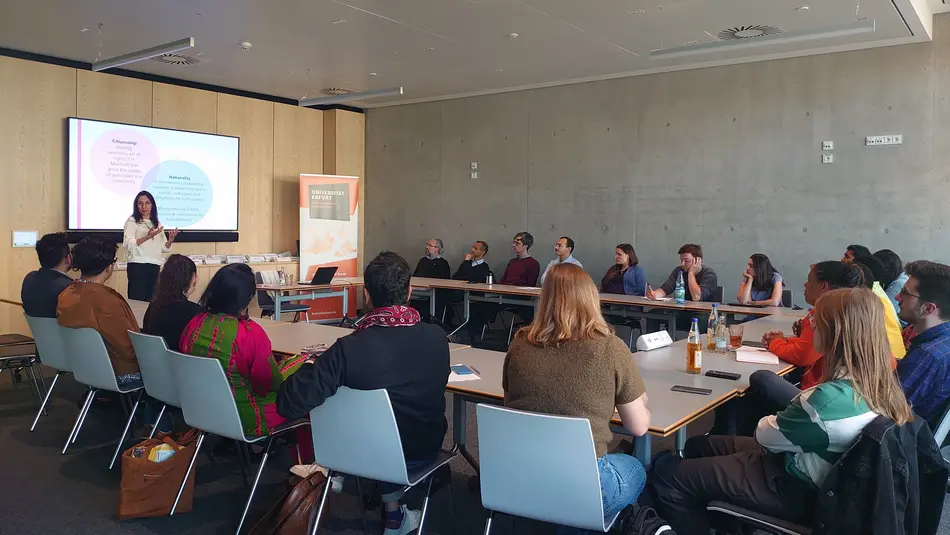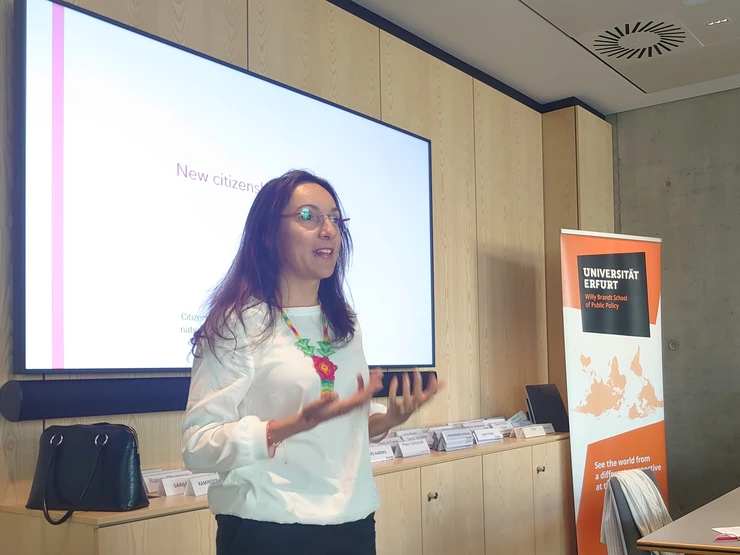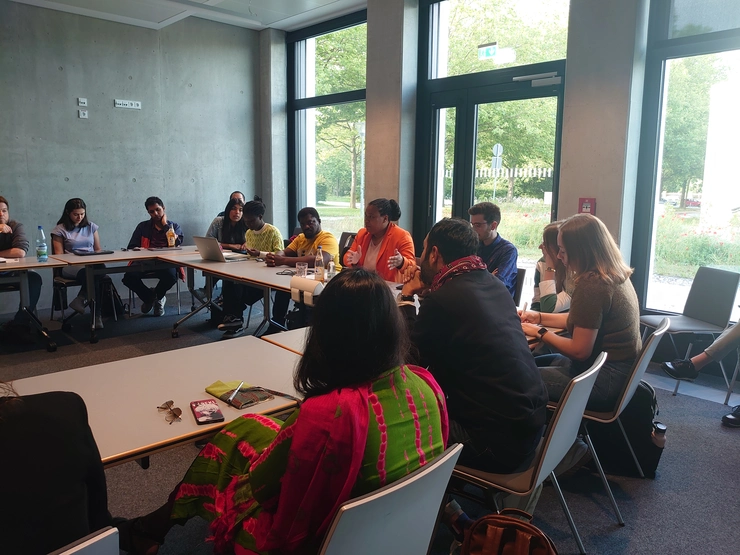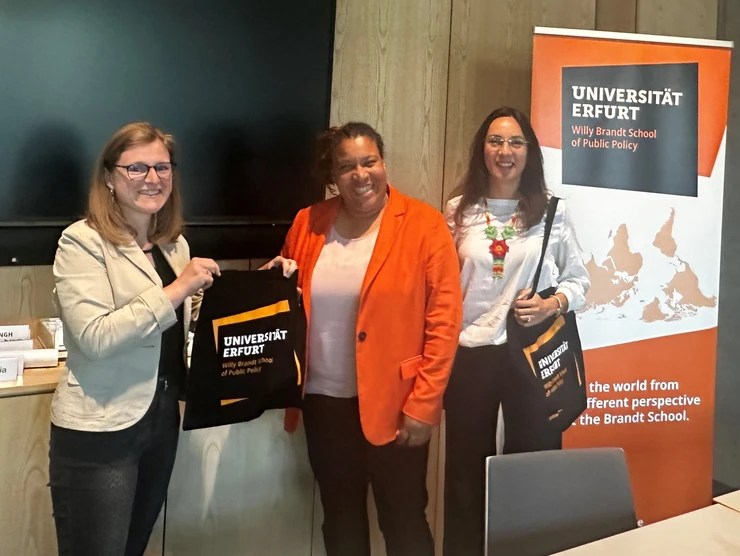On June 11th, Professor Luicy Pedroza from El Colegio de México gave a guest lecture at the Brandt School along with special guest Doreen Denstädt, Thuringian Minister for Migration, Justice and Consumer Protection.
Professor Pedroza’s lecture focused on the dilemmas democracies face in including migrants, and how migrants can participate politically even when they do not have voting rights in the country they are living in. As more people around the world move to different places, the triangle of nationality, residence, and state jurisdiction gets upset, Professor Pedroza explained. Moreover, different forms of including migrants across borders are defying the relation between citizenship and nationality, which for a long while we thought to be almost the same thing. Nationality, which historically describes the relationship between the nation-state and a person, with rights and obligations for both parties, has been exercised in exclusive, selective ways. Citizenship, in turn, has a longer historical tradition and refers to a person’s identity, but also to political rights and a set of practices that grant the possibility of participation in a political community. These concepts are increasingly moving away from each other as more people immigrate and exercise citizen rights in countries, they are not nationals of, but also of nationals that preserve citizenship right in countries from which they have emigrated.
See more about this argument in Pedroza’s book, Citizenship beyond Nationality.
Professor Pedroza highlighted that only about 30 countries allow immigrants to vote, while 120 countries continue to extend voting rights to emigrants. This presents a clear asymmetry that is also present in discussions around dual nationality and reveals a bias to favor emigrants over immigrants. For instance, in some countries that allow dual nationality is allowed, it is only allowed for own national citizens who emigrate and take another nationality, but not for immigrants, meaning that immigrants intending to naturalize in these countries must give up the nationality from their countries of origin.
In Germany, about eight percent of the population has lived in the country for at least five years but has no voting rights. For many years, the naturalization process in Germany did not make it easy for many migrants to become citizens, though these laws are set to change soon, on July 27th of this year. Professor Pedroza then spoke about the existence of ‘migrant councils,’ which have been a way for migrants without voting rights to participate in democracy in some way. The level of influence these councils have, however, varies widely, and is usually not very strong.
Minister Doreen Denstädt then spoke about the Thuringian case, mentioning that Erfurt has an ‘Ausländerbeirat,’ a migrant council, but that their concerns are often not heard or taken into consideration. She mentioned that one thing Thuringia is doing well is offering free interpreting services in many languages for migrants using hospitals and other institutions in Thuringia.
The lecture was followed by a lively question and answer session in which participants asked many questions of both Professor Pedroza and Minister Denstädt.




